Introduction
From 2018 to 2019, Eye’s University Organization carried out two consecutive initiatives with support from the National Endowment for Democracy (NED). Both programs shared the same overarching goal: to strengthen student participation in public life and advocate for the adoption of a student elections law in the Kurdistan Region of Iraq (KRI). Together, these projects created a foundation for political pluralism and independent student representation on university campuses, countering decades of partisan dominance.
Why a Student Elections Law Was Needed
At the time, there was no legal framework for student elections in the KRI. University campuses were heavily influenced by the two dominant political parties, which pressured students to vote along partisan lines. Independent student groups were marginalized, and genuine democratic student participation was impossible.
Eye’s University recognized that a new elections law was vital to ensure fairness, independence, and student-led representation in higher education.
Phase One (2018): Building Youth Leadership and Advocacy Networks
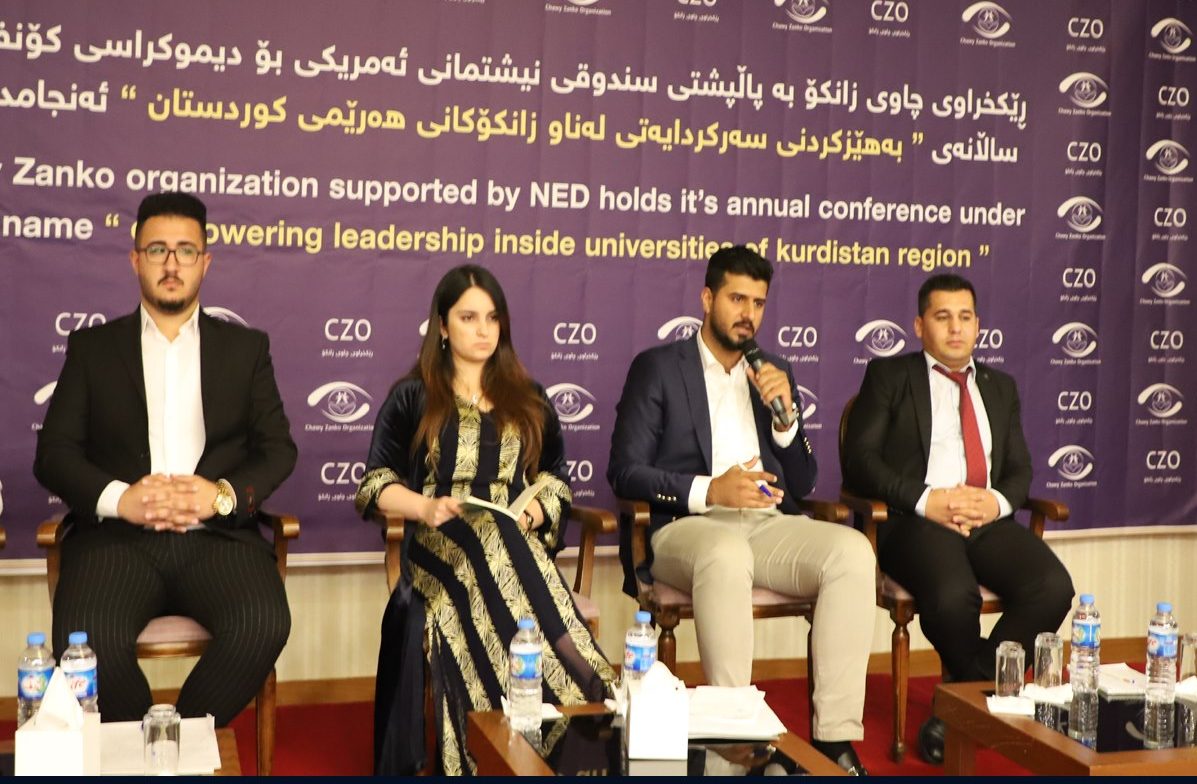
- Train-the-Trainer (ToT) Workshops: Six sessions trained 25 young leaders in communication, leadership, advocacy, and NGO management. Graduates became “Democracy Ambassadors.”
- Youth Committees & Forums: Formed four youth committees and organized six university forums reaching 360 students, introducing the draft elections law and sparking debate.
- Awareness Materials: Designed and distributed 825 brochures and booklets about the draft law.
- Media Outreach: Four radio programs and an online survey raised awareness and collected feedback on the proposed law.
- Advocacy: Democracy Ambassadors met with parliamentary committees and student unions to promote the law.
- Closing Conference: 50 participants from youth groups, civil society, and media discussed the law and survey findings.
Phase Two (2019): Taskforce and Formal Advocacy
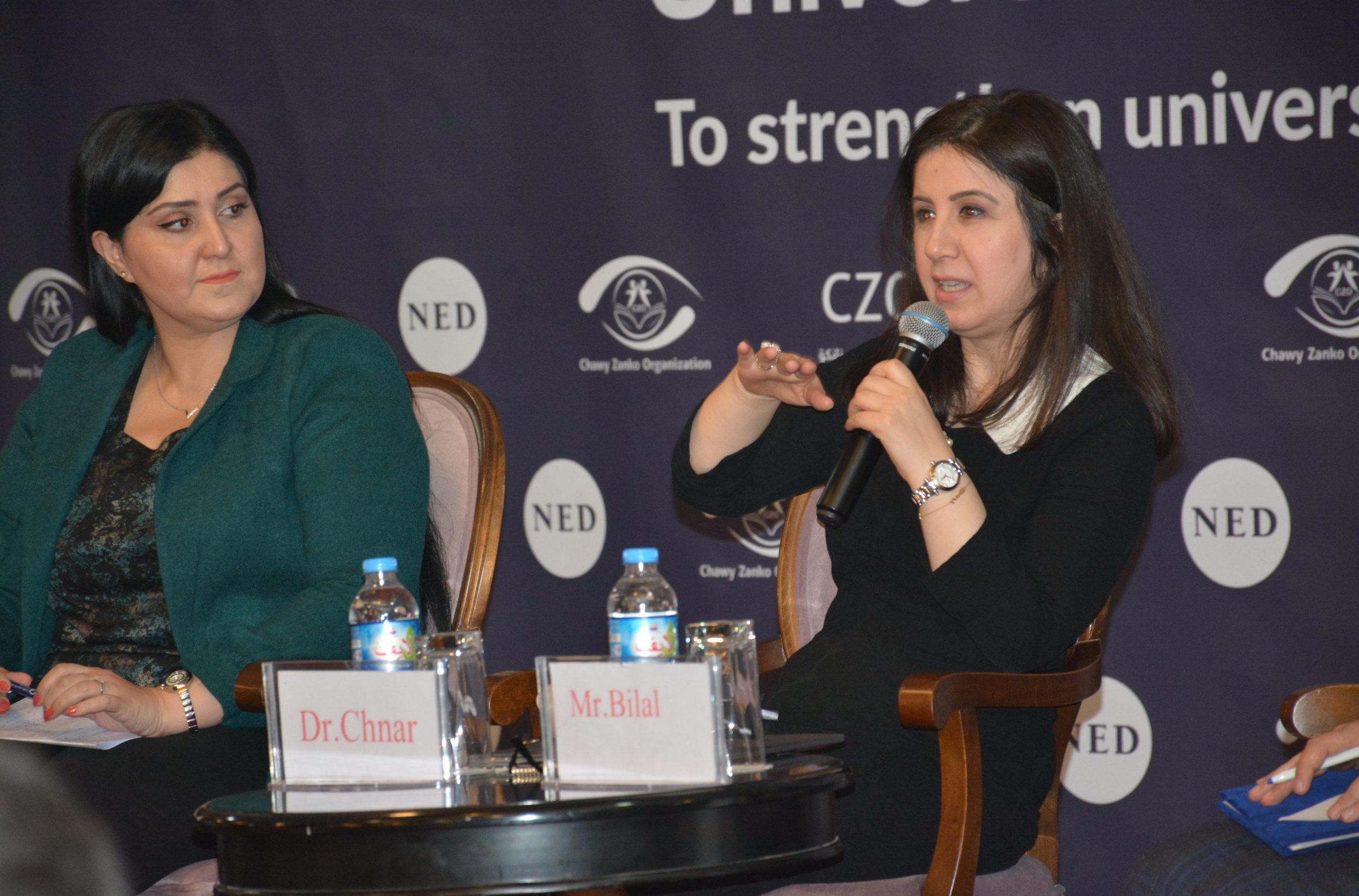
- Taskforce Creation: A team of at least seven members — Eye University staff, Democracy Ambassadors, lecturers, and experts — coordinated the campaign.
- Draft Law Development: A 12-page elections law was refined, proposing open student elections where any student could run regardless of political affiliation. Elected boards would represent students and participate in governance.
- Stakeholder Engagement: The taskforce held at least 10 meetings with university officials, MPs, and journalists.
- Written Report: Published a detailed report justifying the law, outlining obstacles, and presenting recommendations (300 copies distributed).
- Forums & Conference: Organized two one-day forums (50+ participants each) and an annual conference (80 participants) bringing together students, unions, parliamentary committees, and officials.
- Media Advocacy: Produced five short video clips (approx. 2 minutes) showcasing youth voices, female student empowerment, and the importance of student elections. Shared widely on social media, reaching over 11,000 followers.
Impact and Legacy
- Across 2018–2019, these twin programs:
- Empowered a new generation of youth leaders through Democracy Ambassadors and taskforce members.
- Elevated the student elections law to public and parliamentary attention, keeping reform on the political agenda despite partisan resistance.
- Strengthened civic space in universities by fostering dialogue, debates, and independent student organizing.
- Paved the way for later Eye University programs (2020–2025) that expanded into monitoring governance, promoting rule of law, and holding universities accountable.
- Conclusion
- By combining youth training, advocacy, policy drafting, and public engagement, Eye’s University Organization laid the groundwork for independent student governance in Kurdistan’s universities. The 2018 and 2019 programs together created the momentum for long-term reform — turning student voices into a driving force for democratic change on campus.

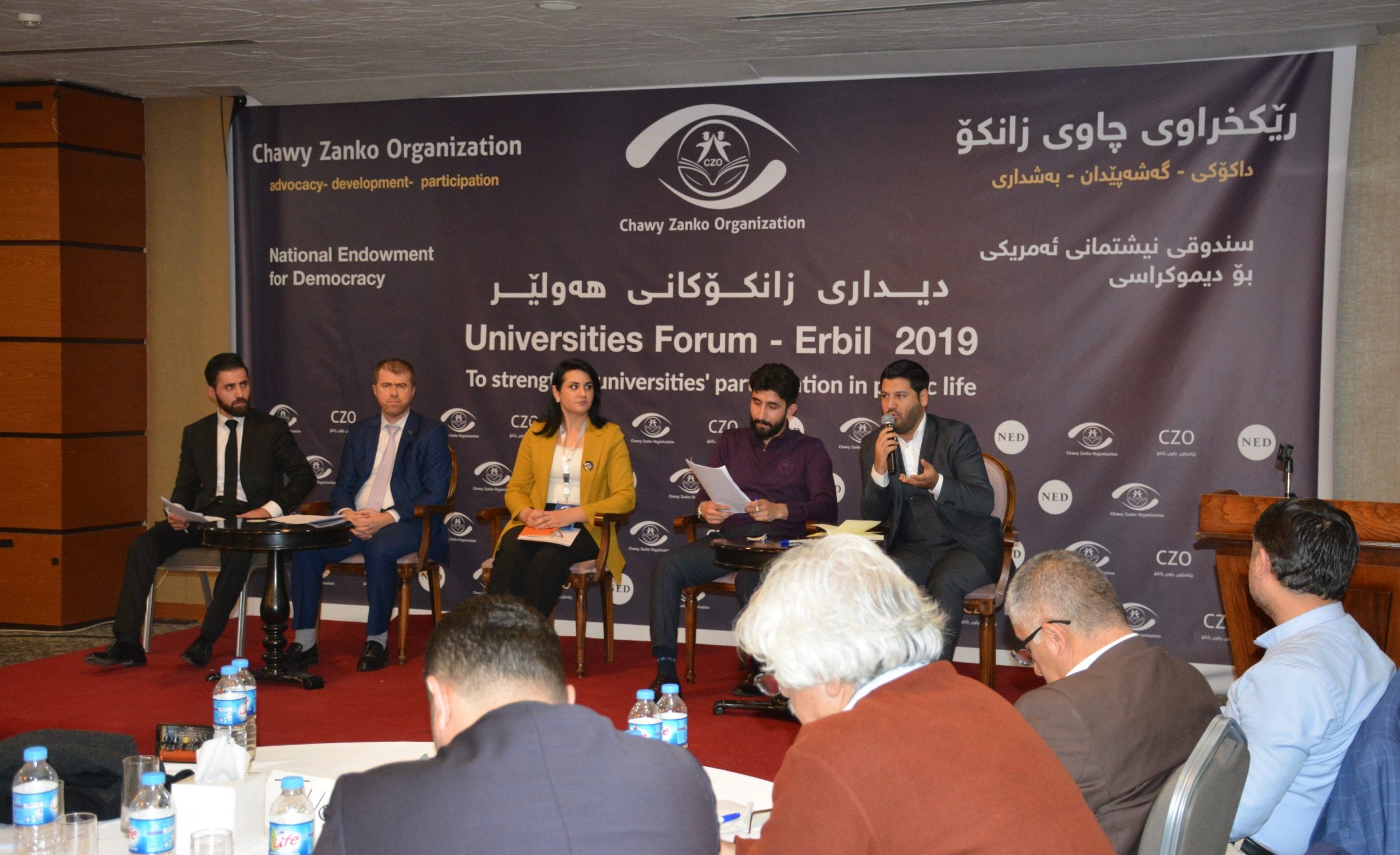

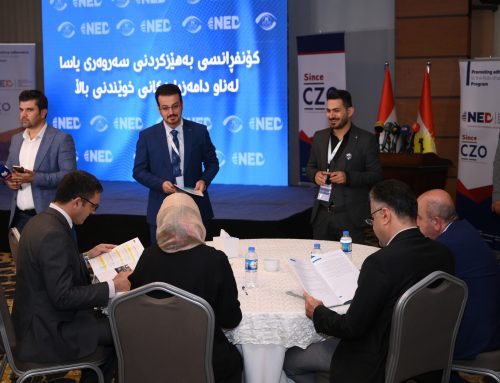
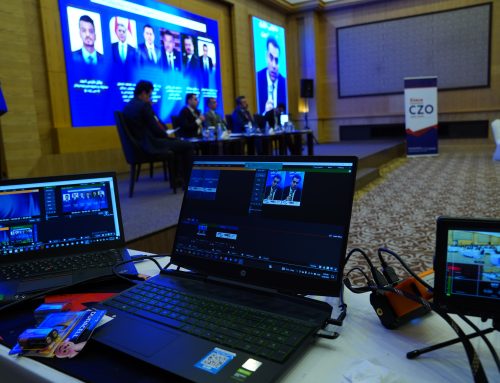

Leave A Comment